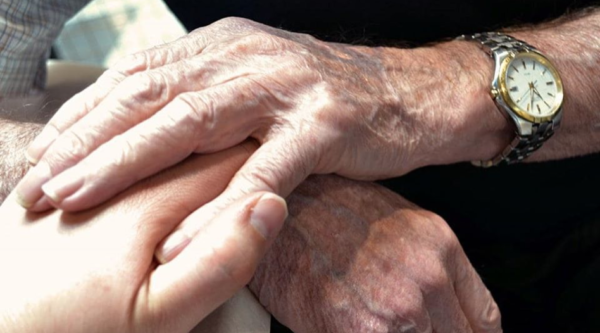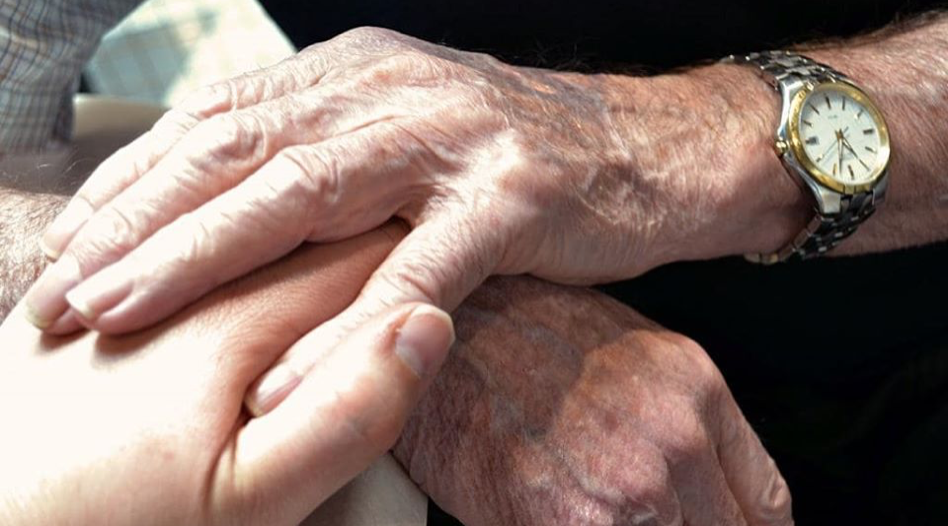
David Seymour’s End of Life Choice Bill passed it’s second reading yesterday. It now goes to the Committee of the Whole House where all members of Parliament consider it part by part and have the chance to debate it in detail.
It seems likely the result of the Third reading will be decided by a conscience vote.
We all come to this debate with differing experiences of dealing with the death of whanau and friends and we will all have a variety of moral and ethical views about what is right and wrong.
If you are just beginning to consider the merits (or otherwise) of David Seymour’s Bill a good place to start is the Justice Committee’s report which you can find here.
Speaking for myself… while I am grateful to various members of the medical profession whose expertise over the years has helped me to live a far longer and healthier life than my father or my grandfather, I would not want them to preserve the quantity of my life over the quality of it .
Should the day ever come when the quantity over quality of life becomes an issue for me, I’d like termination to be my decision and not burden a doctor with it.
I would also like to have the choice of writing a living will to alleviate any doubt about my wishes regarding termination
So, in principle I support The End Of Life Choice Bill to its second reading and will take great interest in the House debate over the detail.
Bryan Bruce is one of NZs most respected documentary makers and public intellectuals who has tirelessly exposed NZs neoliberal economic settings as the main cause for social issues.



Death is nothing, you feel no pain at the end, only sweet relief. All the pain comes before, and ends the moment you die.
The truth is, we’ve allowed death to be turned into an industry. The Medical Industrial Complex makes billions from keeping people hanging on, and paying paying paying, until they can pay no more. Its time to end this travesty of natural justice.
Euthanasia puts a big crimp in the fire hose of cash that is palliative care. So it should not be surprising that the Merchants of Death in our society would have no scruples about wheeling out every conceivable argument to avoid this threat to their industry.
The truth remains, that if you forced a dog to suffer the way we regularly do to thousands of helpless people every day, you would expect to go to gaol.
Let people die in peace, at a time and place of their own choosing.
Noneya – “The truth is, we’ve allowed death to be turned into an industry.”
True enough. The pharmaceutical industry and the aged care industry also have huge vested interests in keeping us going as long as poss. I wouldn’t call them “merchants of death” of death though, more merchants of long lingering lives.
It’s interesting how conservative Christians view death as negative. Catholics in particular are the most suspicious of their whanau wanting to bump them off, and scared stiff of going to hell – a reasonable assumption for many politicians to make – more so with Israel Fonau’s reminders that liars, adulterers et al will spend eternity deep in the burning bowels of the earth as the Satan’s slaves which some of us see them as already.
Martin Luther- bless him – saw death as an expression of God’s wrath, and he saw death as total extinction, which terrified him – which is sad, as is all fear of death.
I quote – a lot- theologian Hans Kung’s justifying his intent to head to a Swiss clinic if necessary, saying that life is a gift from God, and that one can choose to hand that gift back.
It’s not that big an ask really, and we do our nearest and dearest a favour by making our wishes clear while we are still reasonably compos mentis; GP’s actually require it in writing, and even with living wills, there’s no guarantee that one’s wishes will be adhered to.
No one falls in love with lady deaths embrace.
Once again our Maori people are having a law forced on us that is out of kilter with our culture. (culturally inappropriate) To say we are a TOW partner and then pass laws that favour our dominant pakeha culture is plan wrong and shows we still have a lot of work to do in this country. It is not the states role to determine a person can kill themselves. Our Maori people are dying prematurely everyday many haven’t received proper care or health treatment they are literally fighting for their lives. And in this country we don’t seem to care about people with terminal diagnosis cause they have to pay thousand to prolong their lives yet here we are trying to pass a law for some people to end their life.
At least a dozen Maori MP’s voted in favour of this bill, including Willie Jackson, Tamati Coffey, Nanaia Mahuta, Shane Jones and others who didn’t look as if they were being forced to.
Race doesn’t really seem to enter the equation here, and thus far there isn’t anything about it which can be said to favour Pakeha.
There’s nothing to stop any of us noting to our doctors, and our offspring, or our pa’s now, that yes, we want to be resuscitated; yes, we do wish to be kept on life support; no, we don’t want medication which could bring about our death.
This type of info could be recorded on a driving license – but older or debilitated people, or people living in pain, may not have current licenses.
Snow White: “Race doesn’t really seem to enter the equation here, and thus far there isn’t anything about it which can be said to favour Pakeha.”
I agree. It’s most unfortunate for anybody to be attempting to characterise it as a race issue.
“There’s nothing to stop any of us noting to our doctors, and our offspring, or our pa’s now, that yes, we want to be resuscitated; yes, we do wish to be kept on life support; no, we don’t want medication which could bring about our death.”
Quite so. Just as, nowadays, one can have a DNR noted on one’s medical file. Not particularly satisfactory, if one wishes to choose the time of one’s death, but better than the pointless resuscitations of the terminally ill, as happens now.
D’Esterre, one can’t just have DNR noted on one’s file, but have to actually put it in writing in a letter- and even then, it may not get acted upon – there was a case at Wgtn Hosp about a year ago when a woman’s DNR quest was ignored, and she was resuscitated, and was displeased.
Some Americans get a Do Not Resuscitate tattoo, and I’ve thought of an engraved bracelet.
When I joined VE I decided to give my pa to a lawyer to make my ‘pull the plug’ decision
as I don’t think I can rely on my kids – the lawyer looked a bit startled I must say.
The one time that nursing staff suggested upping the morphine to me, at a family dying, having ascertained that my comotose sibling was not in any pain, I did not agree, simply because I wanted to keep her for as long as I could.
So it’s not always straightforward, and dying can still be prolonged and agonizing, and those who say that suffering ennobles people, should not inflict their medieval masochistic beliefs upon others – but consider praying for lots of suffering to enoble their own last days on earth – and butt out of mine.
Snow White: “…one can’t just have DNR noted on one’s file, but have to actually put it in writing in a letter- and even then, it may not get acted upon…”
Indeed. I was aware of the situation, but my description of the process made it sound simpler than it actually is. I have family members whose DNR has been acted upon, fortunately for them. No doubt it’s critically dependent upon a bunch of factors: possibly in my family members’ case, assertive relatives, along with medical staff not wanting to be heroes, helped.
“…it’s not always straightforward, and dying can still be prolonged and agonizing, and those who say that suffering ennobles people, should not inflict their medieval masochistic beliefs upon others – but consider praying for lots of suffering to enoble their own last days on earth – and butt out of mine.”
Exactly!
Michelle: “Once again our Maori people are having a law forced on us that is out of kilter with our culture.”
I get the impression that you don’t fully understand what Seymour’s Bill involves. The salient issue here is “choice”. That entails informed consent. Nobody would be forcing you to opt for assisted death. It is for the individual to choose. The state has no role in that, either.
“To say we are a TOW partner and then pass laws that favour our dominant pakeha culture is plan wrong”
This is plain nonsense. Really it is.
Assisted death may be contrary to your culture, as you claim. But it looks to me as if opposition to it is essentially religious in nature. Be that as it may, I remind you that NZ is a secular society, and our system of laws is also secular. Those of us who aren’t religious are entitled to a legal system which isn’t influenced by religious considerations of that sort.
I doubt that you speak for all Maori in this matter, just as I don’t presume to speak for all pakeha: just for those who share my views. Some Maori will no doubt opt for assisted dying, just as will be the case with pakeha. Note that much of the opposition is coming from pakeha groups.
“It is not the states role to determine a person can kill themselves.”
Where did you get the idea that – beyond Parliament passing enabling legislation – the state would have any role in it at all? It would be the individual’s choice alone.
For the life of me, I fail to understand the argument you’re making here. The proposed law doesn’t require or force anybody – Maori or pakeha or anyone else – to opt for assisted death.
Just as with legalised abortion, the change in law would remove the stigma of criminalisation. That’s all.
https://www.youtube.com/watch?v=07I6lLuhvcI
Comments are closed.